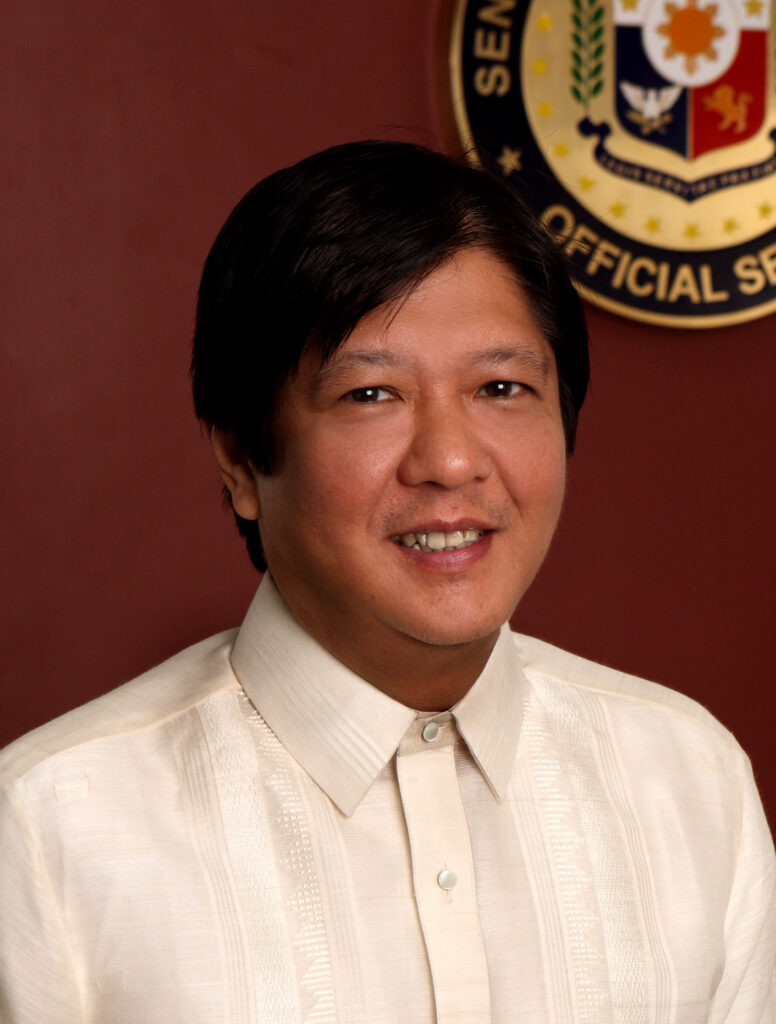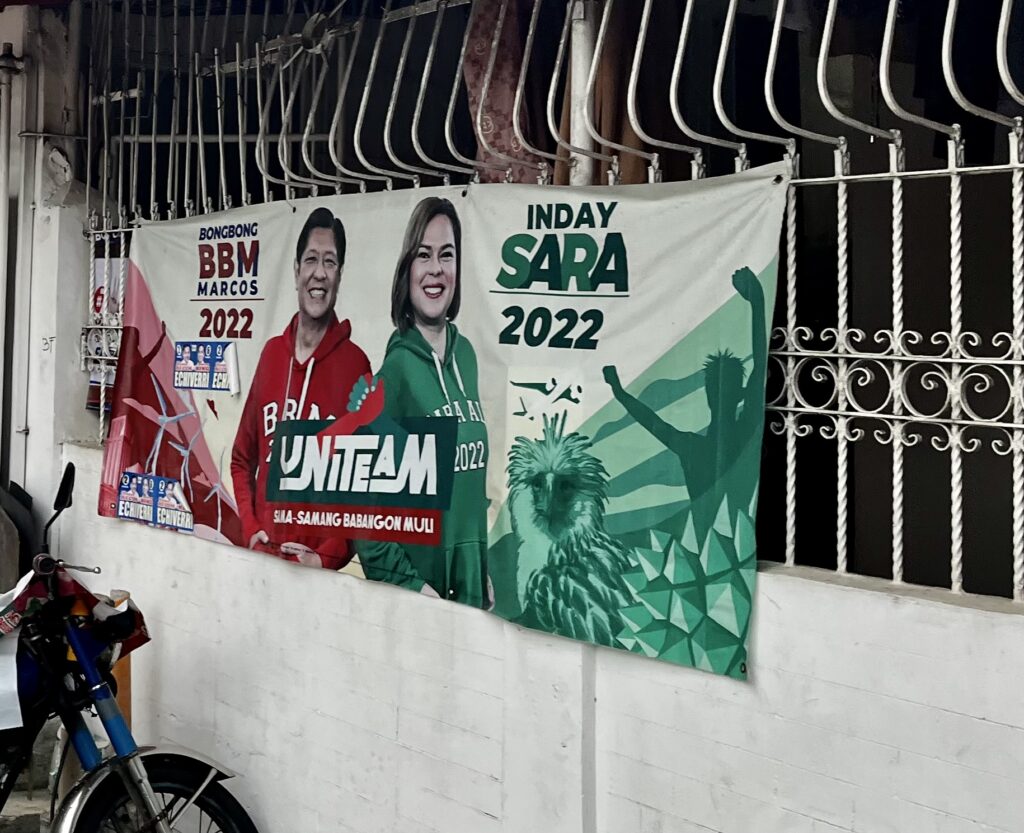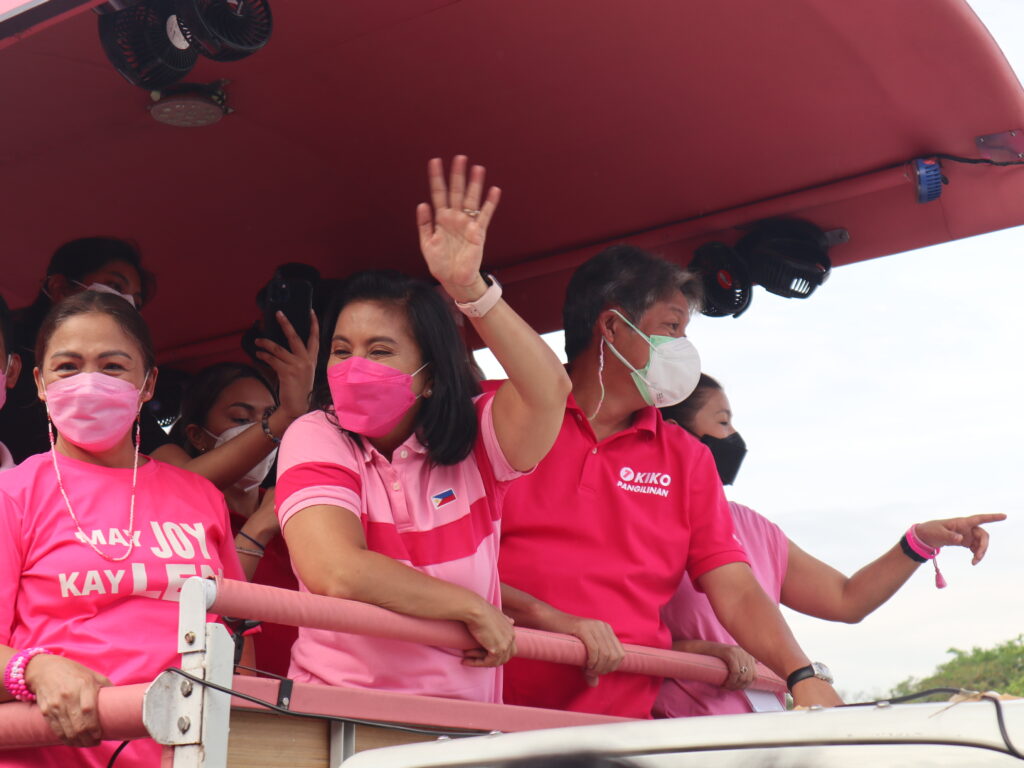
The Philippines: life beyond elections
Mary Aileen D. Bacalso can barely contain her grief as she fears her homeland will return to a period of brutality and unrest.
Prior to the 9 May 2022 presidential elections, the Filipino people looked forward to voting with high hopes for a better Philippines. Divided though they were in their choices of candidates, they exercised their right to suffrage, as guaranteed by the 1987 Philippine Constitution.
And so on election day, voters, including elderly people in their 90s and beyond, flocked to the polls in the scorching summer heat and in the midst of the ongoing coronavirus pandemic to participate in a political exercise which would largely determine the future of the country.
The Commission on Elections tallied 55.5 million Filipinos who exercised their right to vote, representing 82.6 percent of the 67.4 million registered voters – the highest voter turnout since the country shifted to automatic polls in 2010. (That number does not yet include the votes in one province on the island of Mindanao.)
But, while fully aware of pre-election opinion polls pointing towards what actually happened, I, along with many others in the human rights community, was still shocked and utterly dismayed by the landslide victory of Ferdinand ‘Bongbong’ Marcos Jr., who reportedly received no less than 31 million votes, and of his vice presidential running partner Sara Duterte. Marcos is son of the notorious Philippine dictator Ferdinand Marcos Senior, whereas Duterte, former mayor of Davao City, is daughter of incumbent president Rodrigo Duterte.

Ferdinand R. Marcos, Jr., CC BY-SA 2.0 https://creativecommons.org/licenses/by-sa/2.0, via Wikimedia Commons
With the fastest results ever in history, even faster than the elections in the US, the elections were marred by various issues including almost 2,000 dysfunctional machines, electricity outages, alleged tearing up of ballot papers, digital manipulation, vote-buying, vote-selling and disenfranchisement.
The victory of the Marcos-Duterte tandem is the worst election turn-out I could have imagined. Both were endorsed by the outgoing President Duterte whose six-year term, due to end on 30 June 2022, is notorious for its record of extrajudicial killings and undocumented enforced disappearances against the backdrop of his signature ‘war on drugs’. Officially, the police claims that 6,201 persons were subjected to extrajudicial executions for their involvement in drugs. Non-government organizations, however, state that they have documented at least 30,000 cases of killings. Duterte used all the powers he could muster support the Marcos-Duterte tandem in order to escape accountability and exonerate himself.
In September 2021, a pre-trial chamber of the International Criminal Court authorized an official investigation into crimes against humanity allegedly committed in the Philippines between 2011 and 2019 against the landscape of Duterte’s ‘war on drugs’. These crimes continue to victimize the country’s poor, condemned to death on mere suspicion of being drug dealers, drug users and drug pushers. Such investigation would also include the same atrocities in Davao during his term as the city’s vice mayor and mayor for over two decades.
Marcos Jr’s proclamation as president, which obviously should only usually take place once the present incumbent has stepped down, was brought forward by the Philippine Congress to last month. Many suspect this is because of an earlier and still continuing petition filed by civic leaders to block Marcos Jr. from taking office on the basis of allegations that he lied when he said he had not been convicted of any crime. The petition’s assertion states that Marcos was convicted of tax evasion in 1995, an offence which would disqualify him from seeking public office.
So bringing the proclamation forward could be an attempt to circumvent this challenge. But the petition could still go before the Supreme Court, the last venue where Marcos’ candidacy could be cancelled. Should the Supreme Court decide in favor of the petition, Marcos’ votes would be considered stray votes and the candidate who received the second-highest votes would be proclaimed president.
In my own little way, I worked – and prayed – as hard as I could to try to avoid the return of the Marcos dictatorship and the perpetuation of President Rodrigo Duterte’s war on drugs.
Waking up the day after the elections with the news of the Marcos-Duterte ‘landslide victory’, I grieved with many other freedom-loving Filipinos who took the news as yet another sign of the demise of our fragile democracy.
During all my years as a student, I had known only one president of the Republic of the Philippines – none other than Ferdinand Marcos Senior. For a nine-year-old child, which is what I was when martial law was declared on 21 September 1972, the past is longer than the future. This year has been exactly 50 years since that woeful day.
And so, precisely in this anniversary year, it is heartbreaking to witness the rise to power of the son of an ill-famed dictator, with the daughter of a man who has so blatantly flouted human rights as his vice president.

I have been working for human rights since my college years. While, fortunately, I do not have first-hand experience of the armoured fist or repression during the darkest of the Marcos years, as a student activist at the age of 16 I was not an undiscerning spectator.
In my college years, my membership of Student Catholic Action of the Philippines and the College Editors’ Guild of the Philippines made me aware of the political detention of 22 activists in 1981, many of whom were university students in Cebu City where I studied. I witnessed one of the hearings of the detainees who were on hunger strike and whose situation was hidden from public knowledge ahead of the visit of Pope John Paul II to the city.
I also heard and read about a massacre in Hinunangan, Southern Leyte, where eight children aged from 3-18 were mercilessly killed by the 357th Philippine Constabulary. Hinunangan is just about half an hour away from my home town, yet the majority of my townmates knew nothing about it.
Documenting a gruesome massacre was my baptism of fire in my first job in the Visayas Secretariat of Social Action of the Catholic Bishops’ Conference of the Philippines. As part of a fact-finding mission organized by the office, I visited Escalante, Negros Oriental, the day after the gruesome massacre that occurred on 20 September 1985. Etched in my memory is the sight of a woman who, in search of a family member, was looking at the photos taken on ‘Bloody Thursday’, only to see that her son was one of the 30 people killed. Despite the government’s creation of an official Fact-Finding Team, only three low-ranking policemen were jailed for their participation in the killings and were subsequently released on parole. The promised indemnification of the victims’ immediate families never occurred.
At the height of the persecution of Church people in the country, I travelled with Minet Aguisanda, a colleague from a sister agency, the Visayas Ecumenical Movement for Justice and Peace, to the militarized province of Samar to document the incarceration of the late Fr Pedro Lucero, who was mauled, threatened and tortured by the military in Camp Lucban, Catbalogan, Samar. I remember that he was handcuffed. The perpetrators had poured water all over his body for 30 minutes. He had been stripped naked and abused. He was hit on the head, breast and belly to force him to confess his alleged involvement in the Communist Party of the Philippines.
Policemen in shields, some using tear gas and truncheons, were an ordinary sight during rallies and demonstrations. I remember that, in his white cassock, Redemptorist priest Fr Rudy Romano (who subsequently disappeared never to be found) was at the forefront of protest actions, and he was one of those tear gassed protesters. On a number of occasions, he was arrested, detained for days, and later released. But when he disappeared on 11 July 1985, he never returned. Fr Rudy Romano is one of the hundreds of desaparecidos during the Marcos regime.
Amidst historical distortion brought about by years of disinformation, there are still victims of Marcos-imposed martial law who have survived to tell their stories. I have worked with a number of them whose tales still send shivers down my spine.
A friend whose mother was a political detainee during the dictatorship was gang-raped by her guards and was forced to have a sexual relationship with the commander to avoid the brutality of many others.
A colleague’s husband was beheaded along with two other activists. Their heads were displayed using bamboo poles and were paraded around the village to frighten the community. To date, the corpses of the victims have never been found.
The above-mentioned examples are but a few illustrations of what occurred for more than two decades of the dark years of the Marcos regime. Amnesty International reported Marcos’ unleashing of a “wave of crimes under international law and grave human rights violations, including tens of thousands of people arbitrarily arrested and detained, and thousands of others tortured, forcibly disappeared and killed.”
Decades later, after the nightmare of martial law, the landslide victory of Ferdinand Marcos Jr. raises a whole series of questions.
Notwithstanding election irregularities, what are the factors leading to the political come-back of Marcos Senior’s son to Malacañang Palace? Why is it that so many people have collective amnesia? Is the electorate bereft of proper education about the horrors of martial law? Were they not born yet during those obscure years of tyranny? Could it be the years of disinformation that made people believe in the so-called Marcos’ ‘Golden Years’ of peace and prosperity? Was the vote-buying that temporarily responded to the immediate need for food for millions of poor voters a major factor? Is it the impunity seen in the utter lack of prosecution of perpetrators who roam free and continue to enjoy positions of power? What could have been done or undone?
These are important questions and in-depth academic research is imperative for us to better understand our identity as a people.
The length of time which has passed since the martial law years might possibly explain why people have forgotten them. But what about the very recent extrajudicial killings committed by the incumbent Duterte administration? Here it is definitely not the passage of time which has made people forget the loss of precious lives in Duterte’s ongoing war against the poor.
Against this stands the ‘pink revolution’ – a message of hope and love conveyed by Vice-President Leni Robredo. Her brief six-month campaign for the presidency brought out the best in the Filipinos.

Patrickroque01, CC BY-SA 4.0 https://creativecommons.org/licenses/by-sa/4.0, via Wikimedia Commons
There was an unprecedented outpouring of volunteering when people shared their time, talent and treasure to achieve the change in government they were hoping for. Mammoth rallies, house to house campaigns, contributing hard-earned money for the campaign – all these gave hope to a country facing the risk of the return to dictatorship and authoritarianism. Seeing people rejoicing – dancing, singing and chanting messages of hope – I cried tears of joy. Amidst the deliberate and systematic burial of a dark past and the chilling apathy towards an equally obscure present, it was heartwarming to see in the people a sense of patriotism so profound and such a strong display of solidarity.
Hence our horror when the results came in. Thousands marched in protest to the headquarters of the Commission on Elections in the days that followed. Young people volunteered to manually recount votes. The day after the elections, my son attended a huge rally at Liwasang Bonifacio and offered a cultural performance in protest against what I believe to be the dirtiest elections ever in the country’s history.
In a thanksgiving rally at the Ateneo University in Quezon City, Vice President Leni Robredo assured her supporters that there is life beyond elections and vowed to commit herself to continue to make the life of Filipinos better.
She said: “I agree that we have to investigate the remaining questions on the elections so that the whole truth will come out. Our legal team is focused on this. We are consulting data scientists and other experts. There are watchers working 24/7 who are checking on the manual audit. Yet as the real picture continues to be clearer, we need to accept that the results of such elections were not in accordance with our dreams. In doing so, we can start to focus ourselves on the future…
“We need to accept the decision of the majority. I am asking you to be one with me on this. Let us work hard so that all that we have achieved will not come to naught…”
She requested the same cooperation and volunteering spirit which were shown during the campaign period in the interest of the poorest of the poor to improve the quality of their lives.
In conclusion, she consoled her grieving supporters: “Weep now, if you must, but when you are ready to wipe away the tears, steel yourselves, prepare your hearts, for there is work ahead to do.”
What is in store for the country in the next years and beyond, no one can tell. Yet what is certain is that the hope of the country lies in the hands of each and every Filipino.
In a recent meeting I had with the new Argentinian Ambassador to Manila, His Excellency Ricardo Bocalandro, he reckoned that more than ever now is the time for human rights defenders to continue their work. It is worth noting that what has been achieved in Argentina in terms of the triumph of truth and justice, especially for that country’s desaparecidos, is mainly due to the persistent and indefatigable efforts of families of the disappeared and human rights defenders.
Ensure that history is not re-written. Tell the truth to the generations of today and tomorrow. Give prime importance to education. Combat impunity by filing cases against perpetrators of human rights violations to help ensure non-repetition. Unite, organize and mobilize people towards genuine change…
These and a thousand and one other tasks, if done with love, dedication and commitment, can certainly attain the long-aspired social transformation that the Filipino people deserve.
As Filipino-American Labor organizer Larry Itliong said: “The day we stop burning with love, people will die of the cold.”
Like what you’ve read? Consider supporting the work of Adamah by making a donation and help us keep exploring life’s big (and not so big) issues!
Mary Aileen Bacalso
Mary Aileen D. Bacalso is the president of the International Coalition Against Enforced Disappearances (ICAED). By dint of her work for victims of enforced disappearances nationally, regionally and globally, on 10 December 2013, she received the Emilio F. Mignone International Human Rights Prize given by the Government of Argentina. She likewise received the Franco-German Ministerial Prize for Human Rights and the Rule of Law on December 12, 2019.

